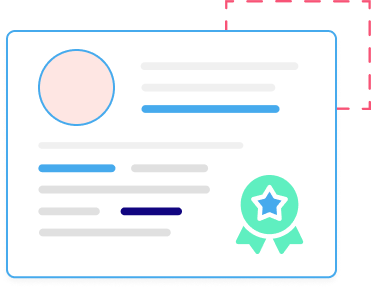SAP FI Course
SAP FI (SAP Financial Accounting Training & Certification)
Get all SAP Course training online here!

About the SAP Financial Accounting (FI) Training Program
Our SAP Financial Accounting (FI) Training Program is designed to equip you with the knowledge and skills needed to excel in the dynamic field of SAP financial management. This comprehensive course blends foundational FI concepts with practical applications, preparing you for real-world challenges in SAP S/4HANA environments.
Learn from Industry Experts
You’ll learn from SAP-certified trainers with extensive industry experience, gaining access to the latest SAP FI tools, valuable tips, and industry best practices.
Comprehensive Curriculum
The program covers a wide range of topics, including:
- Basics of General Ledger Accounting: Understand the core principles of financial accounting.
- Accounts Payable: Learn how to manage vendor invoices and payments.
- Advanced Financial Reporting: Explore techniques for generating and analyzing financial statements.
- Asset Accounting: Gain insights into managing and reporting on financial assets.
- Integration with Other SAP Modules: Discover how FI integrates with other SAP components for streamlined financial operations.
Enhance Your Expertise
Join us to enhance your expertise in SAP FI and make a meaningful contribution to your organization’s financial operations. Equip yourself with the skills that are essential for success in today’s business environment.
Key Highlights of The Training

Certification Ready
Prepare for certification with mock tests and guides.
Broad Curriculum
Covers FI basics to advanced S/4HANA features

Job-Ready Skills
Acquire SAP FI
skills to be job-ready.
Data Science Program Overview
Designed for Working Professionals
Programming Tools & Languages Covered
Career Mentorship by Industry Experts
Placement Assistance in MNC's
Seamless Student Support
Data-Driven Business Decisions
Course Outline
Learning Path of Data Science
Program Cohorts includes Aspiring professionals of any educational background with an analytical frame of mind is suited to pursue the Data Scientist Master’s Program
Chapter 1 – Python Basics
Chapter 2 – Python Data Structures
Chapter 3 – Python Programming Fundamentals
Chapter 4 – Working with Data in Python
Chapter 5 – Working with NumPy Arrays
Chapter 1 – Data Science Overview
Chapter 2 – Data Analytics Overview
Chapter 3 – Statistical Analysis and Business Applications
Chapter 4 – Python Environment Setup and Essentials
Chapter 5 – Mathematical Computing with Python (NumPy)
Chapter 6 – Scientific computing with Python (Scipy)
Chapter 7 – Data Manipulation with Pandas
Chapter 8 – Machine Learning with Scikit–Learn
Chapter 9 – Natural Language Processing with Scikit Learn
Chapter 10 – Data Visualization in Python using matplotlib
Chapter 11 – Web Scraping with BeautifulSoup
Chapter 12 – Python integration with Hadoop MapReduce and Spark
Chapter 1 – Introduction to Artificial Intelligence and Machine Learning
Chapter 2 – Data Wrangling and Manipulation
Chapter 3 – Supervised Learning
Chapter 4 – Feature Engineering
Chapter 5 – Supervised Learning-Classification
Chapter 6 – Unsupervised learning
Chapter 7 – Time Series Modelling
Chapter 8 – Ensemble Learning
Chapter 9 – Recommender Systems
Chapter 10 – Text Mining
Chapter 1 – Getting Started with Tableau
Chapter 2 – Core Tableau in Topics
Chapter 3 – Creating Charts in Tableau
Chapter 4 – Working with Metadata
Chapter 5 – Filters in Tableau
Chapter 6 – Applying Analytics to the worksheet
Chapter 7 – Dashboard in Tableau
Chapter 8 – Modifications to Data Connections
Chapter 9 – Introduction to Level of Details in Tableau (LODS)
Chapter 1 – Fundamental SQL Statements
Chapter 2 – Restore and Back-up
Chapter 3 – Selection Commands: Filtering
Chapter 4 – Selection Commands: Ordering
Chapter 5 – Alias
Chapter 6 – Aggregate Commands
Chapter 7 – Group By Commands
Chapter 8 – Conditional Statement
Chapter 9 – Joins
Chapter 10 – Subqueries
Chapter 11 – Views and Index
Chapter 12 – String Functions
Chapter 13 – Mathematical Functions
Chapter 14 – Date – Time Functions
Chapter 15 – Pattern (String) Matching
Chapter 16 – User Access Control Functions
Chapter 1 – Introduction to Business Analytics
Chapter 2 – Introduction to R Programming
Chapter 3 – Data Structures
Chapter 4 – Data Visualization
Chapter 5 – Statistics for Data Science I
Chapter 6 – Statistics for Data Science II
Chapter 7 – Regression Analysis
Chapter 8 – Classification
Chapter 9 – Clustering
Chapter 10 – Association
Download Data Science Brochure
Unlock your potential with our Data Science Training Program! Gain access to best-in-class content delivered by leading faculty and industry experts.
Growing Demand for SAP FI Training
We are on a mission to cultivate impactful SAP FI experts in the market.
SAP professionals are highly sought after across various industries. Companies are actively looking for certified and skilled candidates who can utilize SAP FI to streamline financial processes, manage accounting tasks, and enhance financial reporting. This expertise is essential for enabling businesses to succeed in the evolving market landscape.
Career Opportunities
By mastering SAP FI, you can become a valued SAP FI Consultant, Financial Analyst, or Finance Manager within a leading organization. Equip yourself with the skills that employers are seeking and position yourself for success in your career.

Who Should Enroll
- IT Professionals
- Analytics Managers
- Business Analysts
- Banking and Finance Professionals
- Marketing Managers
- Supply Chain Network Managers
- Beginners or Recent Graduates in Bachelors's or Masters Degree
Data Science Certification
After completing the Data Science Training course successfully, acquire this prestigious recognition from myTrainingwala. You will be qualified in Natural Language Processing, Deep Learning, Business Intelligence/ Data Analytics, Business Analytics, and Data Engineering.
The certificate will serve as evidence of your expertise in Data Science. Avail greater job security and a good salary with IT Career




